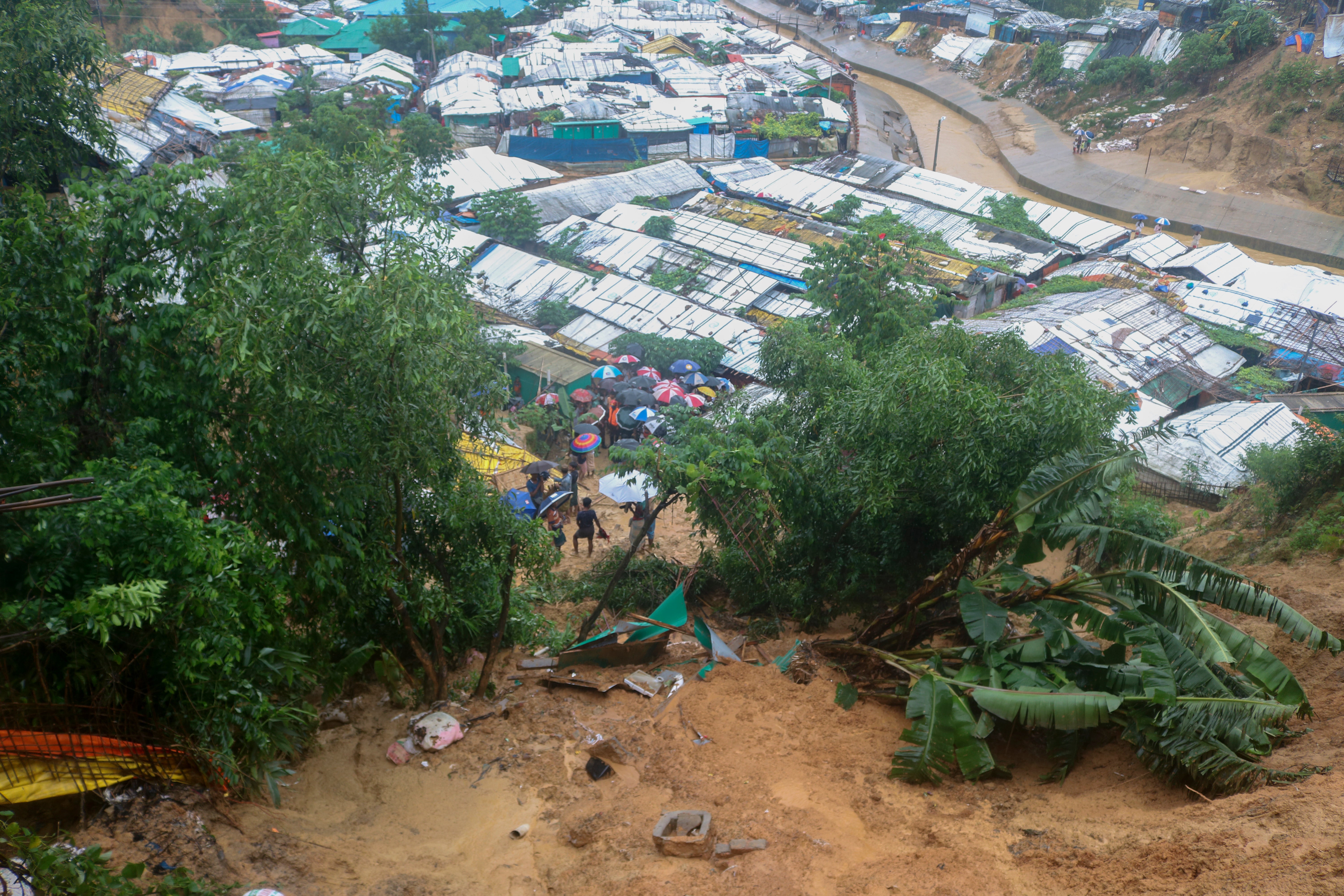5 Rohingya die in landslide in Bangladesh refugee camp
A landside in a refugee camp in southern Bangladesh has killed at least five Rohingya Muslims after heavy rains battered the area, where more than 1 million refugees from neighboring Myanmar have been sheltered

Your support helps us to tell the story
From reproductive rights to climate change to Big Tech, The Independent is on the ground when the story is developing. Whether it's investigating the financials of Elon Musk's pro-Trump PAC or producing our latest documentary, 'The A Word', which shines a light on the American women fighting for reproductive rights, we know how important it is to parse out the facts from the messaging.
At such a critical moment in US history, we need reporters on the ground. Your donation allows us to keep sending journalists to speak to both sides of the story.
The Independent is trusted by Americans across the entire political spectrum. And unlike many other quality news outlets, we choose not to lock Americans out of our reporting and analysis with paywalls. We believe quality journalism should be available to everyone, paid for by those who can afford it.
Your support makes all the difference.At least five Rohingya refugees died in a landslide triggered by heavy rains in a camp in southern Bangladesh, where more than 1 million refugees from neighboring Myanmar have been sheltered, an official said Tuesday.
Shamsud Douza, additional commissioner for refugees, relief and repatriation, said a child was also swept away by flooding in a canal at Ukhiya.
Bangladesh’s weather office forecast more rain in coming weeks.
About 700,000 Rohingya fled to the refugee camps in Cox’s Bazar in Bangladesh after August 2017, when the military in Buddhist-majority Myanmar began a harsh crackdown on the Muslim group following an attack by insurgents. The crackdown included rapes, killings and the torching of thousands of homes, and was termed ethnic cleansing by global rights groups and the United Nations
More than 300,000 other Rohingya refugees have been living in Bangladesh camps for decades.